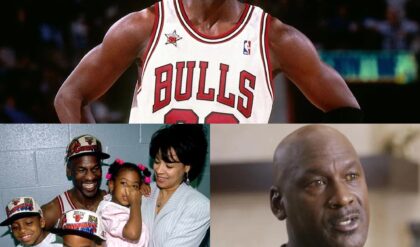The Walking Dead as a franchise has done remarkable things with a genre that had otherwise been used a thousand times over. It reinvigorated the idea of the zombie apocalypse by focusing not on the shambling hoards of undead (though they are still a major part of the story), but the humans who managed to survive them. This included how these individual characters chose to survive, what that did to them, and how they ultimately overcame or succumbed to the bleak world they now found themselves in. It’s unsurprising then that the comic went on to create some of the most well-known characters in literature. The heroes and villains found in the panels of the series are, in many ways, an analysis of humanity itself.
From best to worst, these characters are often symbols of certain traits that human beings possess. Loyalty, vengeance, hope, all these things can make up the human experience, and this distinguishes them from the monsters they battle every day. One character in particular was especially important in the comic and the show: Carl Grimes. The son of protagonist Rick Grimes, Carl’s journey isn’t just the story of a little boy having to grow up in a post-apocalyptic world where his fellow humans can be even worse than the man-eating monsters; it was also about the human condition, and how one might keep their humanity intact despite the horror and trauma inflicted upon them. For this reason, Carl was more valuable in the comics than he was in the television show.
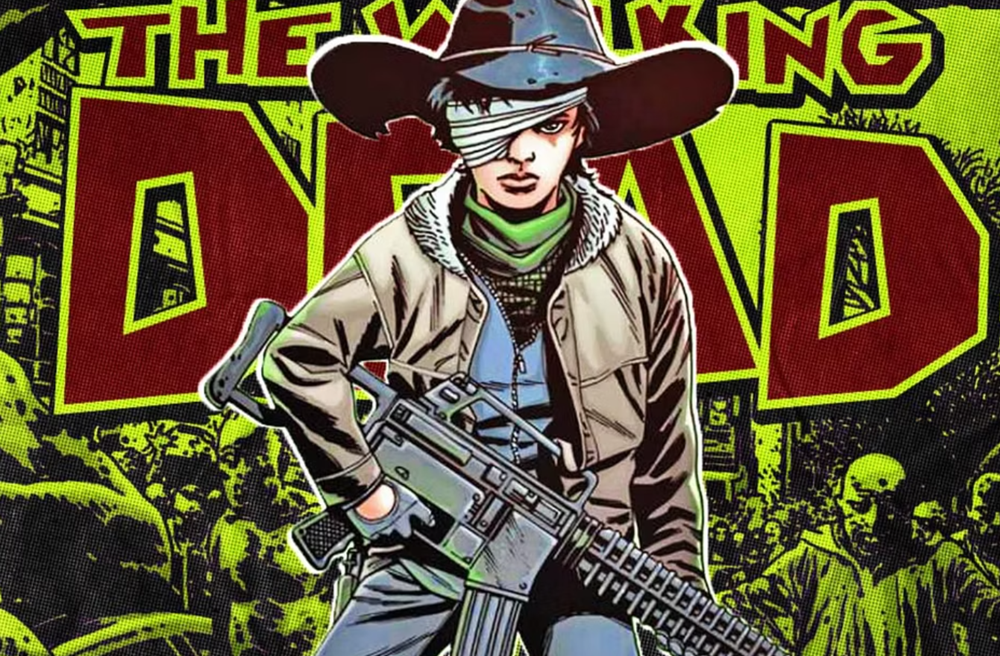
Carl’s Purpose in the Comic Series
The story of Carl Grimes had very much the same beginning in both the comic and TV series. At the start of the series, Carl was a normal kid. His concerns were doing well in school, hanging out with his friends, and sometimes worrying when his dad went out to do his job as a police officer. Then, the apocalypse occurred, and Carl was one of the few survivors of the initial outbreak. While his parents did their best to ensure that he would retain his childhood innocence and morality in a world that got increasingly bleaker, repeated tragedies and horrific encounters slowly began to harden Carl as a person. This kickstarted when Carl had to shoot and kill Rick’s partner and close friend, Shane, before he could shoot Rick in the back.
Barely a few years after that moment, Carl had become a cold survivor. To adapt to his new surroundings and cope with the grief over the loss of his mother and baby sister, Carl became much more callous to the world. He became more reckless, acting without too much forethought if he thought it was for the good of the group, which by this point had become his sole family. In light of this, despite his harshness towards others that he deemed dangerous. Even Carl’s worst traits were representative of his desire to protect those he loved.
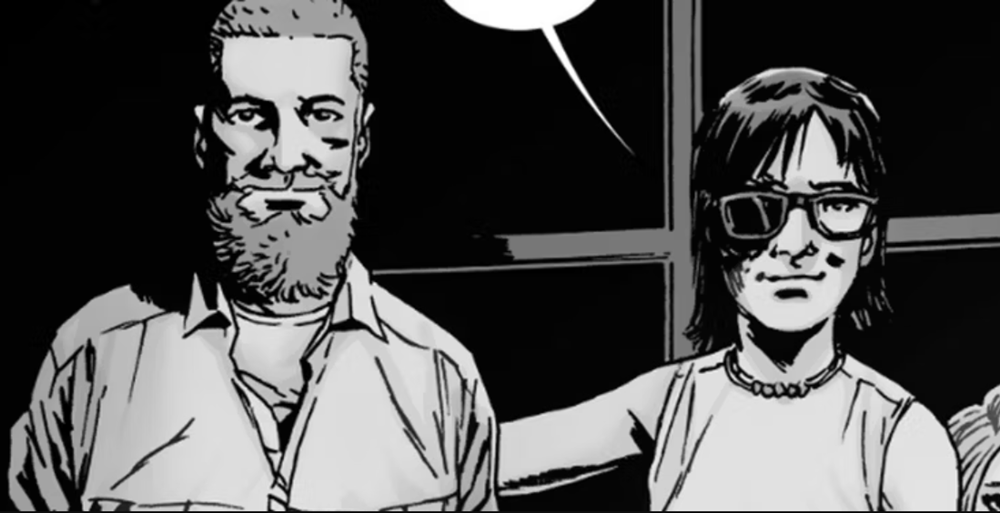
Thankfully, after some self-reflection, Carl managed to rediscover his dwindling morality but retained the skills and edge he had gained as a survivor. Ironically, this contradicted his father, who was losing his morality as time pressed on, something that once again put him at odds with his father. Ultimately, Carl’s journey in the comic was a way to examine how people could adapt to a world gone wrong. Carl is the representation of humanity enduring. While most of his adult companions had some inkling of the world before, Carl only had the briefest glimpse of it before it was ripped away. As a result, he was the bridge between the old and the new way of living. If he could retain some of the morality that the old world had while still being able to survive the world as it was now, then there was hope for the future.
Carl’s Television Counterpart Took an Entirely Different Route
Though aspects were altered, much of Carl’s story in The Walking Dead TV show was the same as his comic version. Much like Carl he suffered multiple tragedies that inevitably toughened him up to better survive the world. After some time though, Carl rediscovered his humanity and became a unique balance of compassion and calculation, able to effectively defend himself. However, the major divergence came in the form of his ultimate fate.
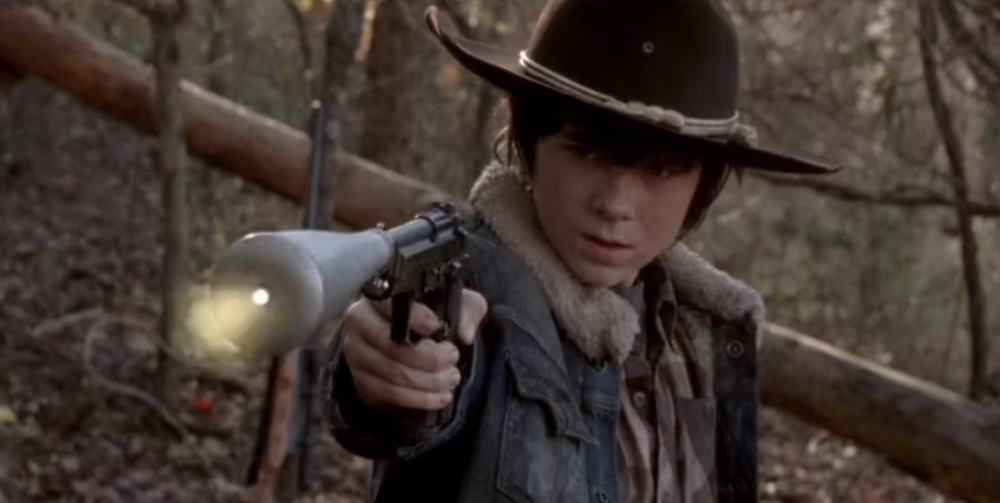
In the comic, Carl managed to outlive his father, growing up safely in the new world as it slowly found ways to keep humanity alive and reduce the threat the walkers present. Carl married Sophia Peletier, who survived all the way to the end of this series and had a daughter with her. They fulfilled Rick’s hope that the world he would leave for his son would be a better one than the one he woke up in. Carl had become the best of both worlds and in doing so, it paved the way for others to let go of the hostile mindsets the harsh new reality had forced upon them.
In the TV series, Carl was unexpectedly bitten during the events of the show’s eighth season. As the bite was on his torso, there was no way to prevent his death, and he ended up taking his own life to both avoid becoming a walker and to spare his family the pain of putting him down themselves. His death was a major shock to fans everywhere, as up until that point, it was assumed that, much like in the comics, Carl was essentially unkillable. Sure, he could be hurt and even maimed like any other character, but it seemed a foregone conclusion that he would make it to the end of the series alive. The fact that he didn’t was an upset to fans, who realized that the television series had truly become its own entity, distinct from the comics, even if some things were the same. As a result, the ending of the series suffered slightly as the message of hope and survival was weakened by Carl’s tragic passing.
Why One Carl Lived While the Other Had to Die
Carl’s television death wasn’t simply for the sake of shock value or to renew interest. It had a purpose: to save his father’s soul. By this stage, the show had reached the “All Out War” section of The Walking Dead’s timeline. The survivors, led by Rick Grimes, were in open conflict with Negan’s Saviors, and the trajectory Rick was on could only have ended with Rick killing Negan. This would have broken the story off in a major way from the comics where Rick let Negan live. Given everything Negan had done to him, Rick would have needed an exceedingly important reason to spare him.
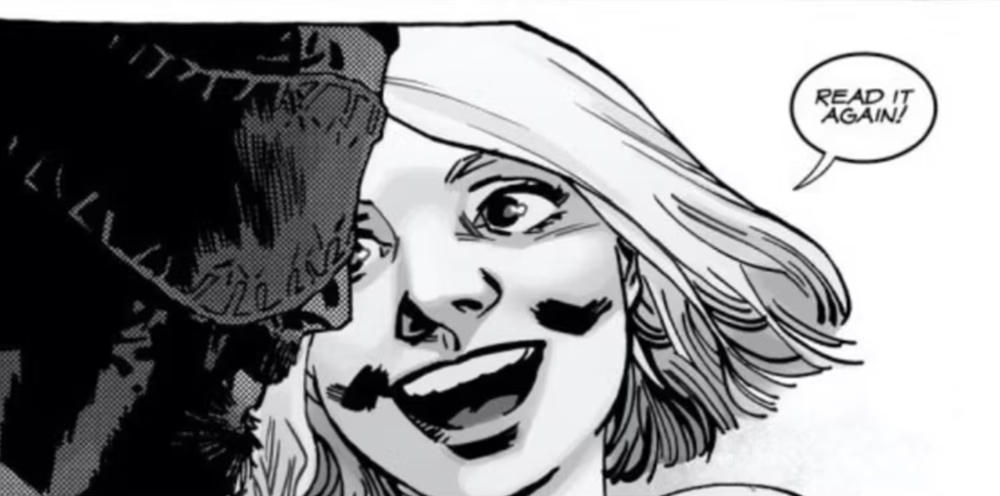
That reason was Carl. The death of his son caused a major shift in Rick’s priorities as he began contemplating Carl’s ultimate dream for the world. Carl had long since stated that he wanted nothing more than peace, a place for his family to live their lives happily and safely. Rick couldn’t make this dream a reality if he abided by the dog-eat-dog mentality that had dominated his life ever since he woke up from his coma into a world gone wrong. To honor his son’s wishes and build a better world, he had to spare Negan.
So, while this preserved the timeline where Negan served the purpose of saving the survivors years later, it ultimately severed the future that Carl was supposed to see in the comics. In that timeline, Carl helps fulfill Rick’s dream of building a safer world. He may have outlived his father in that story, but it was ultimately a more faithful fulfillment of the story’s message about hope and perseverance. Carl survived all the way to the end without losing the best of himself. He became an excellent survivor, but not at the cost of his humanity. That hope for tomorrow was what the new world was built on, and the TV series squandered this to avoid a potential plot point issue a few years later.
